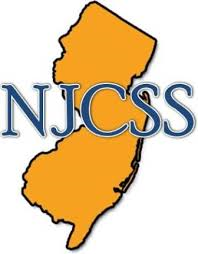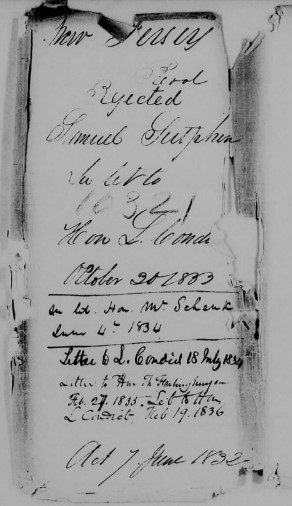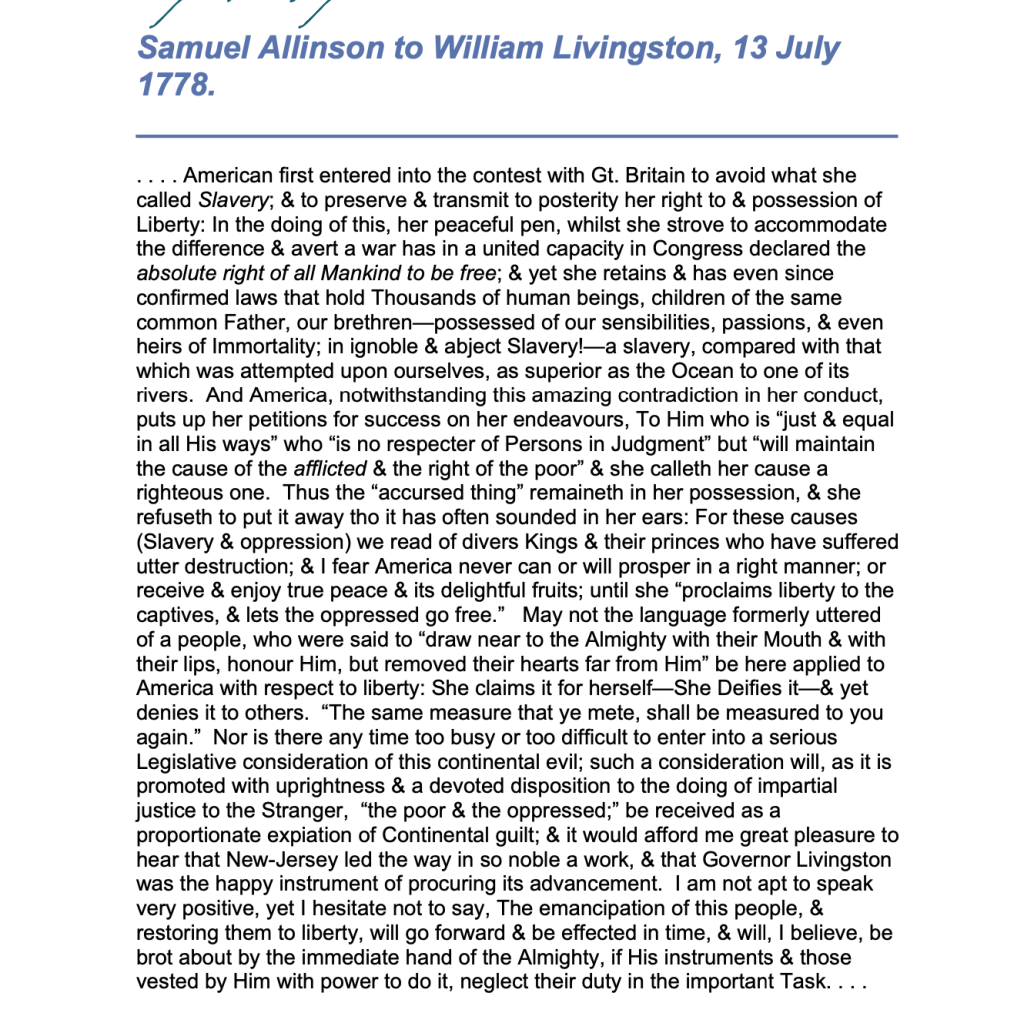Our Story: Philip Freneau
Matawan, NJ. Monmouth County – 1778
Parents throughout history want what is best for their children, sometimes they try to pressure their children into decisions that may be against what the child wants to do. An example of this was Philip Freneau, whose family moved from New York in 1762 to what is now known as Matawan, Monmouth County, New Jersey. He attended the College of New Jersey, now Princeton University, beginning in 1768 and majored in theology at the urging of his parents. While attending, Philip became acquainted and made friends with people who would be very influential in the impending conflict with England. Some of the notable people included the president of the college, Reverend John Witherspoon who was delegate to the Continental Congress from New Jersey and a signer of the Declaration of Independence. Freneau’s roommate was James Madison, future father of the Constitution and President of the United States. His good friend, Hugh Henry Brackenridge, was a teacher, newspaper editor, chaplain in the Continental Army, Pennsylvania Supreme Court Justice, and influential in Thomas Jefferson’s campaign for President. Aaron Burr and “Lighthorse” Henry Lee also attended Princeton University while Philip was there.
Philip Freneau and Hugh Henry Brackenridge became notorious for writing poetry which included the mistreatment of the colonies by Britain. This debate was intensified by two campus organizations, the American Whig Society and the Clio-Sophic Society, which the Whigs referred to as the “Tories”. Philip enjoyed writing and composing poetry, yet was influenced by the stories from his father, who was a merchant in the wine trade sailing from the colonies to Madeira off the coast of northwest Africa, to the Caribbean and back to the colonies.
Making a decision about a future career can be difficult. If you had the choice to pursue a steady and sustainable career in the ministry or education, or chasing the romantic, adventurous stories of your father, which would you choose and why?
Freneau chose to begin his career as a teacher in New York, perhaps a career more in line with his parent’s expectations but lasting only thirteen days. “Those who employed me were some of the gentlemen from New York; some of them are bullies, some merchants, others scoundrels. They sent me eight children, the eldest of whom was ten years old. Some could read, others spell, and a few stammer over a chapter of the Bible – these were my pupils and over these I was to preside” (Griswold)
He realized that he was unsuited for teaching school and yet failed to return the money he received as a retainer for employment. After spending time at his mother’s farm, called Mount Pleasant, in Matawan, New Jersey, he realized that he was also not particularly fond of the farming life and accepted an invitation from his friend, Henry Brackenridge to come to Maryland as a teacher in his school. He taught there for three years before heading home to Mount Pleasant and then moving to New York to pursue his love of writing and publishing poetry.
How do you think he felt with his lack of success?
Freneau continued to publish poems for little or no profit, using this medium to express his feelings on the political climate which was difficult due to the occupation of British forces in New York. His writing expressed his hope for reconciliation with Britain, but also the idea of liberty. Poetry at this time was read as entertainment and at times used to verbally and satirically discredit and attack public figures. Poems were published in newspapers, broadsides, and books. Earning a living from publishing was difficult due to the expenses of printing and binding books.
An excerpt from Freneau’s poem:
TO THE AMERICANS On the Rumoured Approach of the Hessian Forces, Waldeckers, & c. (Published 1775)
If Britain conquers, help us, heaven, to fly:
Lend us your wings, ye ravens of the sky;—
If Britain conquers—we exist no more;
These lands will redden with their children’s gore,
Who, turned to slaves, their fruitless toils will moan,
Toils in these fields that once they called their own!
To arms! to arms! and let the murdering sword
Decide who best deserves the hangman’s cord:
Nor think the hills of Canada too bleak
When desperate Freedom is the prize you seek;
For that, the call of honour bids you go
O’er frozen lakes and mountains wrapt in snow:
No toils should daunt the nervous and the bold,
They scorn all heat or wave-congealing cold.
Haste!—to your tents in iron fetters bring
These slaves, that serve a tyrant and a king;
So just, so virtuous is your cause, I say,
Hell must prevail if Britain gains the day.
How does this poem try to influence the reader’s opinion? What examples of influential vocabulary is he using? How would you write a poem about the Boston Massacre that would influence your audience to follow your perspective of the incident if you were a Boston resident?
For male citizens in the eighteenth century, militia duty was often required; if you were at sea for business, you would be exempt. Freneau used his family’s connections to go to sea and gained valuable career experience by staying in Santa Cruz, now known as St. Croix. He observed the effects of plantation slavery, having previously only been exposed to the few house and field slaves owned by his family. He was thoroughly disgusted by the treatment Caribbean slaves received and wrote poetry reflecting his feelings. He then traveled on ships to islands and in Bermuda he fell in love with a local woman, who unfortunately became ill and died. He returned home in 1778 and joined the New Jersey militia, serving as a lookout by patrolling and scouting the shore area for British ships.
Philip took every opportunity to sail ships, serving as a privateer, sailing between Philadelphia and the West Indies. He participated in successfully capturing the British Ship Brittanie on December 30, 1779. At the end of his militia duty he continued his privateering activities as a civilian on the ship Aurora, while trading tobacco in the Caribbean. His ship was attacked by the British Ship Iris and all of his belongings were confiscated and he was held captive on a British prison ship in New York Harbor. He was held in miserable and filthy conditions for three weeks before becoming ill and taken to a hospital ship where conditions were not much better.
Imagine being locked in a cell on a rotting and filthy ship, not knowing when and if you would be included in a prisoner exchange? How would you pass the time? Would you give up and sink into misery, why or why not? How would you find ways to try to occupy your mind to keep your spirits up in hopes for release?
Freneau later wrote a poem about his experiences called The British Prison Ship.
THE various horrors of these hulks to tell,
These Prison Ships where pain and penance dwell,
Where death in tenfold vengeance holds his reign,
And injur’d ghosts, yet unaveng’d, complain;
This be my task —ungenerous Britons, you
Conspire to murder whom you can’t subdue. —
No masts or sails these crowded ships adorn,
Dismal to view, neglected and forlorn;
Here, mighty ills oppress’d the imprison’d throng,
Dull were our slumbers, and our nights were long——
From morn to eve along the decks we lay
Scorch’d into fevers by the solar ray;
No friendly awning cast a welcome shade,
Once was it promis’d, and was never made;
No favours could these sons of death bestow,
‘Twas endless vengeance, and unceasing woe:
Immortal hatred does their breasts engage,
And this lost empire swells their souls with rage.
He was released after six weeks and needed to decide how he should pursue a career. Philip moved to Philadelphia and became a writer for the Freeman’s Journal, an anti-British publication. At the time, it was a frequent practice for writers to take pseudonyms in order to avoid persecution over political statements. Words were used as political pressure and were often combined with entertainment using satire. Freneau’s writings would often be targeted as well as a target for more conservative publications such as The Pennsylvania Packet and The Pennsylvania Gazette and his brutal criticism and biting satire made so many enemies that he was pressured to resign as editor.
After the Revolutionary War was over, he went back to sea in 1784, but was shipwrecked in a storm off the coast of Jamaica. He survived and made it to land and returned to Philadelphia. He tried his hand at publishing yet again, but could not earn enough money to survive, so he went back to sea on a ship owned by his brother in Charleston, South Carolina. He continued writing and publishing poetry.
How would you feel about your writing if you had a group of critics and opponents just waiting for an opportunity to argue with your work? What should Freneau do?
The shipping business struggled and Philip returned to his mother’s farm. He continued writing and publishing. While in Matawan, he married Eleanor and acquired more land to add to his family holdings.
To augment the income from the farm and support his growing family, he became an editor of a New York paper The Daily Advertiser. With the relocation of the nation’s capital to Philadelphia, New York was no longer a profitable market for newspapers and he moved back to New Jersey and started his own newspaper, The Monmouth Gazette. The newspaper followed his anti-federalist views, agreeing with the principles of Thomas Jefferson and James Madison. Through James Madison, Freneau was offered the position of clerk for foreign languages in the new capital city. He. He was also offered a position with The National Gazette, through his connection with Thomas Jefferson.
Were these appointments ethical? Why or why not?
Philip took the opportunity afforded by his editorial position with the National Gazette to antagonize the Federalists in the Executive Branch, especially targeting Alexander Hamilton and comparing Washington’s presidency to a monarchy. In a letter to Henry Lee in 1793, Washington states:
“The publications in Freneau’s and Beach’s Papers are outrages on common decency; and they progress in that style, in proportion as their pieces are treated with contempt, & passed by in silence by those, at whom they are aimed.” (Washington, n.d.)
The National Gazette continued in publication through the Yellow Fever epidemic of 1793, but the exodus from the city of Philadelphia eventually led to a decline in subscriptions and the end of the paper. Freneau resigned as editor as well as Clerk of Translation, as he was highly unqualified, knowing only English and French. He spent a majority of his money paying other people to translate for him and returned to Matawan with little income.
How would you feel if it seemed that the careers you tried for success kept failing? What would you do next?
Philip began his own local paper, The Monmouth Almanac, which communicated important local events such as the schedule of the New Jersey Supreme Court, Quaker Church meeting places and times, and the weather. He also published poetry and sold subscriptions with moderate success. For more income he began to publish The New Jersey Chronicle which promoted his Republican agenda. Unfortunately, this publication failed.
Persevering, Freneau found a partner in Alexander Menut in 1797, to co-print a newspaper in New York called The Time Piece and Literary Companion. This paper, like Freneau’s previous, attempted to influence the citizenry of New York toward his Republican ideals. He criticized the XYZ affair in 1797, which resulted in many canceled subscriptions and financial losses.
While in New York, Freneau was enlisted by Deborah Sampson Gannett to petition Congress for a pension. Mrs. Gannett had enlisted as a soldier in the Revolutionary War by disguising herself as a man from May of 1782 to being honorably discharged in October of 1783. She had been wounded in battle and claimed disability due to her injury. Freneau used his knowledge of her situation to write an ode that channeled his displeasure with the Federalists. As a result, Deborah Gannett did not receive her pension for many years, eventually receiving it in 1805.
Career and financial misfortune followed. He returned to his land with a loan and a financial gift from his brother in order to stay out of debtor’s prison. He needed money to pay dowries for the weddings of his daughters and for running the farm. He sold property to raise money. In October 1818, a fire burned the Freneau home to the ground, including many unpublished poems. He and his wife settled in a new house under construction on the property. In his family Bible it states:
“The old house at Mount Pleasnt accidentally took fire on Sunday afternoon at 4 o’clock October 18th – 1818 precisely one year after my mother’s decease. It was consumed to the ground with a large part of property therein. The following day we began to remove into the New House, which was partial finished. The Old House was built in 1752 by my father – 42 feet in length and 24 in breadth.” (Ryer, n.d.)
In his elder days Philip Freneau was seen roaming the roads to Freehold and the local hills wearing worn clothing and was well known for frequenting the local taverns, libraries and country store. The lack of money forced his family to sell off more property and the Freneau’s poverty led them to move to an abandoned house belonging to Eleanor’s brother. Philip had a reputation for excessive drinking which may have led to his final demise. On December 18, 1832 he had been at the local country store, meeting with friends and died of exposure when walking home alone; he was found the following day. Philip Freneau is buried in the locust grove in Matawan near his mother.
References:
Freneau, Philip. n.d. “To James Madison from Philip Freneau, 22 November 1772.” Founders Online. Accessed March 4, 2022. https://founders.archives.gov/documents/Madison/01-01-02-0016 .
LEWIS, FRED. n.d. “The Project Gutenberg eBook of The Poems of Philip Freneau (Volume I).” Project Gutenberg. Accessed February 23, 2022. https://www.gutenberg.org/files/38475/38475-h/38475-h.htm
“Press Attacks · George Washington’s Mount Vernon.” n.d. Mount Vernon. Accessed March 4, 2022. https://www.mountvernon.org/library/digitalhistory/digital-encyclopedia/article/press-attacks/
Ryer, James B. n.d. “History of Freneau’s house in Matawan.” Philip Freneau’s home Philip Freneau house in Matawan. Accessed March 4, 2022. http://philipfreneau.com/history.html
“To George Washington from Anonymous, March 1792.” n.d. Founders Online. Accessed March 4, 2022. https://founders.archives.gov/documents/Washington/05-10-02-0108
Washington, George. n.d. “From George Washington to Henry Lee, 21 July 1793.” Founders Online. Accessed March 4, 2022. https://founders.archives.gov/documents/Washington/05-13-02-0176
Young, Alfred F. 2005. Masquerade: The Life and Times of Deborah Sampson, Continental Soldier. N.p.: Vintage Books.




